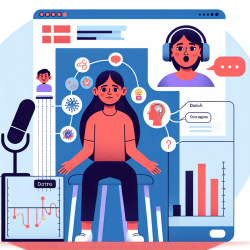Nonsuicidal self-injury (NSSI) is a concerning behavior among adolescents, characterized by deliberate harm to oneself without suicidal intent. While research has predominantly focused on Western populations, a recent study sheds light on NSSI among Chinese middle school students, highlighting the roles of negative life events and social support. This article explores these findings and offers insights for practitioners seeking to address NSSI in educational settings.
The Impact of Negative Life Events
Negative life events are significant risk factors for NSSI. These events can include family disruptions, academic pressures, and interpersonal conflicts. The study found that students experiencing more negative life events were more likely to engage in NSSI. This underscores the importance of identifying and addressing such stressors in adolescents' lives.
The Protective Role of Social Support
Conversely, social support emerged as a protective factor against NSSI. Students who perceived higher levels of support from family, friends, and teachers were less likely to engage in self-injurious behaviors. This finding highlights the critical role that supportive relationships play in adolescent mental health.
Strategies for Practitioners
- Enhance Communication: Encourage open dialogue between students and their support networks. Regular check-ins can help identify stressors early.
- Build Supportive Environments: Foster a school culture that values empathy and understanding. Training staff to recognize signs of distress can make a significant difference.
- Develop Coping Mechanisms: Equip students with tools to manage stress effectively. Workshops on mindfulness and stress management can be beneficial.
- Facilitate Access to Resources: Ensure students have access to counseling services and peer support groups. Providing information about available resources can empower students to seek help.
Encouraging Further Research
The study's findings suggest avenues for further research into the nuanced roles of negative life events and social support in different cultural contexts. Understanding these dynamics can inform tailored interventions that address the unique needs of diverse student populations.
Call to Action for Practitioners
Practitioners are encouraged to integrate these insights into their practice by developing programs that strengthen social support networks within schools. Collaborating with researchers can also enhance our understanding of NSSI and inform evidence-based interventions.
To read the original research paper, please follow this link: Impact of Negative Life Events and Social Support on Nonsuicidal Self-Injury Among Chinese Middle School Students.










